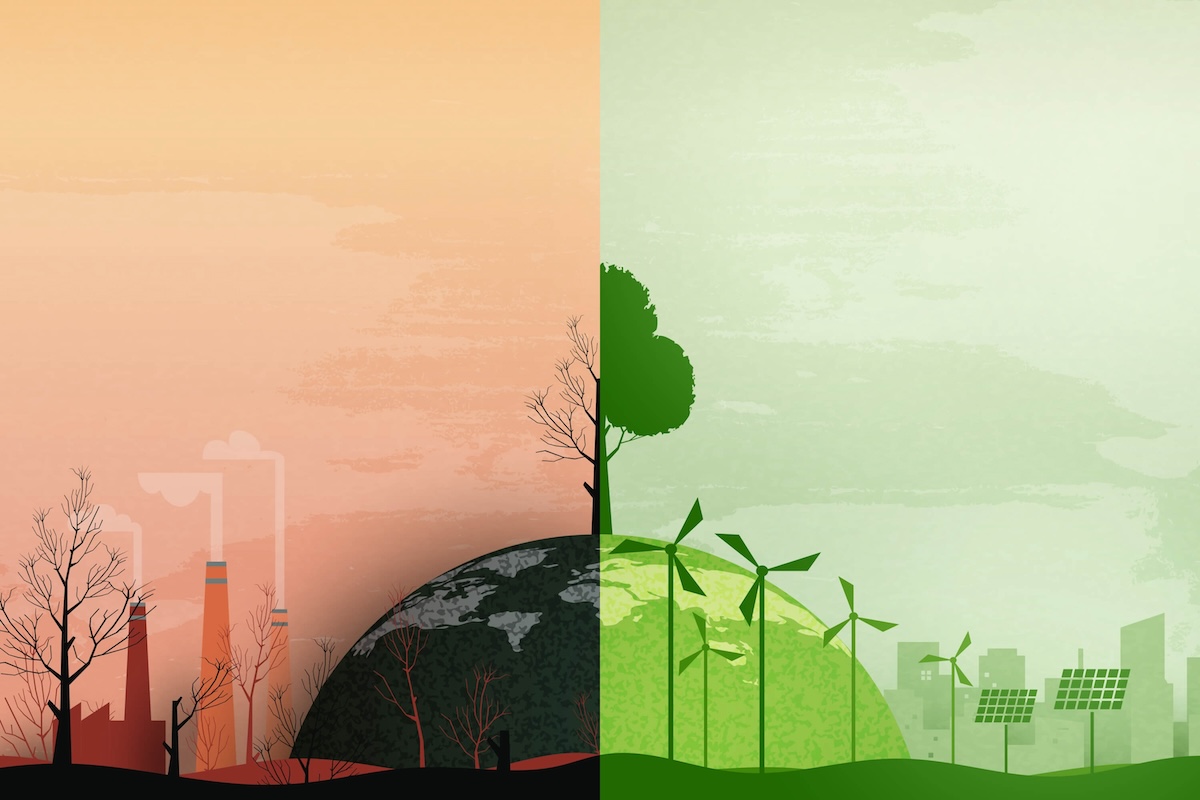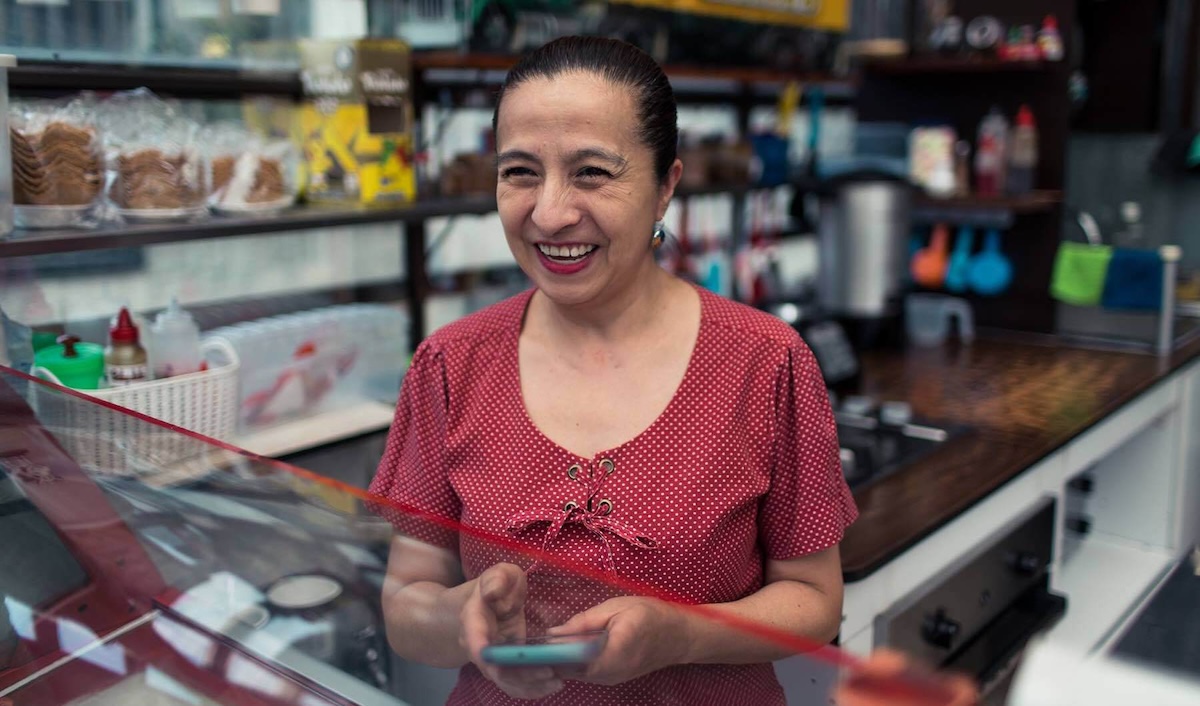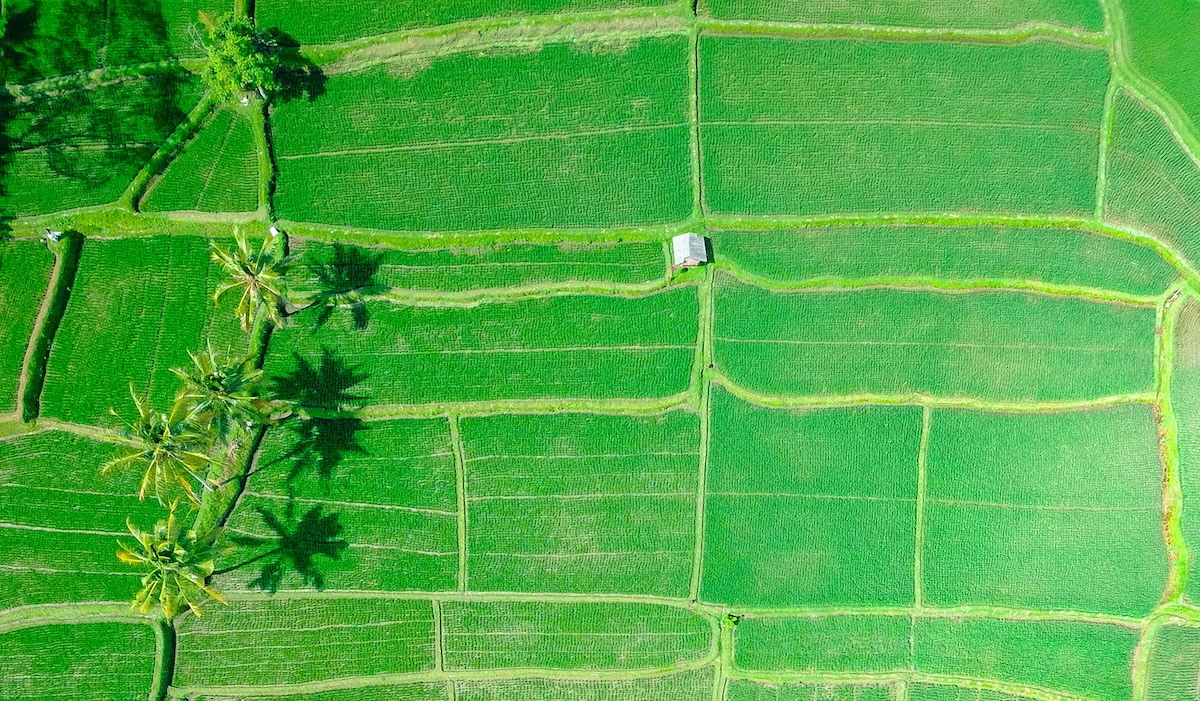Greetings Agents of Impact!
In today’s Brief:
- Climate resilience across the globe on this month’s Liist
- Protecting displaced communities from climate shocks
- Rebuilding Gaza
Featured: The Liist
Trio of $500 million impact funds tackle climate resilience in Asia, regenerative farmland and green infrastructure. Climate finance in Asia. Green infrastructure in the US. Regenerative farmland in Europe, Australia and North America. This month’s Liist of actively raising impact funds features three $500 million impact funds supporting the green transition. First up: responsAbility Investments’ fund for Asia’s energy transition and decarbonization. The Zurich-based impact investment manager, known for its commitment to economic resilience and opportunity in emerging markets, recognizes the threat that climate change poses to lives and livelihoods worldwide. “Amid the protracted wave of extreme heat in Southeast Asia, responsAbility’s new $500 million Asia-focused climate fund is right on time,” reports ImpactAlpha’s Jessica Pothering from Bangkok, where today’s temperature of 90 degrees Fahrenheit (32 Celsius) marked a major break in the heat.
- Real assets. For impact investing, $500 million remains on the larger end for any fund not operated by a mainstream private equity or infrastructure firm. North Sky Capital has a 15-year track record as a green infrastructure investor, with more than $725 million deployed into 40 renewable energy, wastewater management and other assets across three funds. The firm believes its fourth fund, targeted at $500 million, will be buoyed by tailwinds from the Inflation Reduction Act in the US. Agriculture Capital, meanwhile, is seeking to raise a half-billion dollars for its first fund after nearly a decade acquiring and restoring farmland in the US and Australia. The firm is focused on carbon sequestration and biodiversity restoration, and is adding Europe to its list of geographies.
- Impact debt. Colorado-based Mad Capital is also supporting the transition to sustainable agriculture. Its targeted $50 million fund provides loans to US-based farmers shifting to organic farming but are unable to access traditional lenders. Washington, DC-based Connect Humanity is blending low-cost and flexible loans with federal and state funding streams to deliver reliable and affordable Internet connectivity to rural Appalachian communities.
- Basic needs. Also on this month’s Liist: Burnt Island Ventures is seeking to address water, clean tech’s “$900 billion afterthought.” The firm’s first fund, with a target of $50 million, cuts early checks to water management, storage and access startups around the world. Next Billion Capital Partners is raising $250 million for a growth equity fund for companies providing digital access to education, healthcare, finance and other services in emerging markets.
- Keep reading, “The Liist, May 2024: Trio of $500 million impact funds tackle climate resilience in Asia, regenerative farmland, and green infrastructure,” by Jessica Pothering and Lucy Ngige on ImpactAlpha.
- Active funds. Scan more than 100 impact funds that have been raising capital in the past year on The Liist, ImpactAlpha’s searchable database. Know an impact fund manager currently raising capital? Complete this short form.
Podcast: Agents of Impact
VertueLab’s Aina Abiodun on the opportunity in local climate innovation. On the latest Agents of Impact podcast, VertueLab’s Aina Abiodun joins Sherrell Dorsey to discuss how the VertueLab accelerator is using a racial justice lens to build an inclusive climate tech ecosystem in the US Pacific Northwest.
- Listen to the podcast. While you’re there leave us a rating and review! And don’t forget to subscribe. For more, check out our profile of Abiodun from last year.
Dealflow: Refugee-Lens Investing
UN kicks off $100 million fund to protect displaced communities from climate shocks. There are more than 110 million displaced people worldwide – an all time high, according to the UN High Commissioner for Refugees. More than 70% are from highly climate-vulnerable countries. “Many of the countries that have been the most generous in accepting refugees are also the most impacted by the climate crisis,” says Filippo Grandi of UNHCR. The organization has launched a fund to cushion the impacts of climate change for displaced people and their host communities. It will direct capital to climate-related projects in Bangladesh, Chad, Ethiopia, Kenya, Mozambique and other countries where the UNHCR is responding to conflict-related displacement.
- Loss and damage. Who pays for climate devastation has long been a sticking point in international climate finance. Low-income and highly climate-vulnerable countries scored a win at last year’s COP28 climate summit with the creation of a “loss and damage” fund to funnel money from the wealthy countries responsible for climate change to disaster relief and recovery in vulnerable nations (see, “At a loss about the loss and damage fund?“). In the spirit of the fund, Grandi said UNHCR is committed “to advocate and significantly increase funding to support climate action in fragile environments.”
- Share this post.
MAA General Assurance Philippines enlists backers to strengthen microinsurance. The weeks-long heatwave broiling the Philippines (and Southeast Asia broadly) underscores the archipelago’s vulnerability to weather extremes, which disproportionately affect low-income populations. “Access to affordable insurance services allow small businesses and the poorest to bounce back financially and rebuild their lives after an unexpected loss, fostering resilient and inclusive growth,” said Jean-Marc Arbogast of the International Finance Corp., which was among a coalition of investors that acquired an 85% stake in Philippines-based insurance firm MAA General Assurance Philippines, or MAAGAP. Other investors in the deal include SouthEast Asia specialist Triple P Capital, German development finance institution DEG, Finland’s OP Finnfund Global Impact Fund I and the Belgian Investment Company for Developing Countries.
- Fostering resilience. The investment, including IFC’s $10 million, will help MAAGAP offer tailored accident, health and property insurance products for small businesses and low-income households in the Philippines. It will also strengthen the insurer’s digitization processes to expand coverage across its islands while lowering costs.
- Insurance market. The Philippines has secured funding from GIZ and the World Bank for disaster risk insurance, but general insurance adoption in the country remains low. The Asian Development Bank provided a grant to develop microinsurance regulatory frameworks and boost providers’ capacity in the country. MAAGAP is positioned to thrive with the “promising regulatory environment” and growing demand for insurance, said the Triple P Capital team.
- More.
Dealflow overflow. Investment news crossing our desks:
- Infinity Recycling closed its Circular Plastics Fund at €175 million ($188 million) to invest in companies converting plastic waste into virgin-grade commodities. (Silicon Canals)
- Ion Energy, a Thai distributed solar energy provider, scored $3 million in Series A funding from Solar United Network Group and Beacon Venture Capital. (Bangkok Post)
- Brazil’s Smartbreeder, which uses data and AI to help companies adopt more sustainable agricultural processes, raised $2.9 million from EcoEnterprise Fund. (LatamList)
- Movener clinched $2 million from SQM Lithium Ventures, the venture capital arm of Chilean lithium producer SQM, to retrofit diesel-powered trucks into hybrid-electric trucks. (Contxto)
Short Signals: What We’re Reading
🇵🇸 Investing in Palestine. A coalition called Palestine Emerging has released a blueprint for the long term reconstruction and economic development of Gaza and the West Bank. Among those involved, according to The New York Times, are the Bank of Palestine’s Hashim Shawa, Samer Khoury of Consolidated Contractors International, Mohammed Abukhaizaran of Arab Hospitals Group, and Baron Frankal of Portland Trust, which is chaired by Sir Ronald Cohen. “We are proposing to connect Gaza to the world over the long term,” Chris Choa of the London design firm Outcomist told the Times. Palestine Emerging says the framework is intended “to guide actions related to economic stabilization, infrastructure networks, social assets, economic growth, soft power and community engagement.” (Palestine Emerging)
🔋 Battery bonanza. Deployment of battery storage is doubling year-over-year and was the fastest growing commercially available energy technology of 2023. The International Energy Agency says that deployment must increase seven-fold by 2030 to meet global climate goals. (IEA)
🏙️ Carbon-budget budget. New York has become the first major US city to adopt “climate budgeting,” a process that embeds climate considerations into the city’s financial decision making. London and Oslo use similar accounting systems. (Bloomberg)
🔥Muni bond climate risk. S&P Global has released a dataset quantifying climate risk exposure for local US governments and their general obligation bonds. In a medium- to high-climate change scenario, 17% of US counties are at risk of multiple acute climate hazards; one-third of US counties could face chronic climate hazards during the 2020s. (S&P Global)
👩🏾 Expanding access to period products. Growing up in Mali, twin sisters Adam and Awa Drabo experienced firsthand how social taboos and lack of access to menstrual products held back women and girls. They founded Sutura to expand access to eco-friendly period products and education. A loan from Zira Capital, in partnership with a local small business accelerator, enabled them to grow. “These kinds of investments in impact-driven businesses are vital to achieve the UN Sustainable Development Goals,” writes the GIIN in a case study. (GIIN)
🎥 Hollywood’s ‘inclusion alpha’ opportunity. Hollywood is leaving $30 billion on the table annually because of racial inequity, according to a series of reports from McKinsey. The entertainment industry could generate $10 billion per year by reducing the Black inequity gap, up to $18 billion from properly valuing Latino professionals and consumers, and as much as $4.4 billion from more effectively tapping the Asian and Pacific Islander market. (Hollywood Reporter)
Agents of Impact: Follow the Talent
Tom Kalil, previously chief innovation officer of Schmidt Futures, becomes CEO of Renaissance Philanthropy… Lauren Hadi, previously with the Schott Foundation for Public Education, joins the Decolonizing Wealth Project as vice president of resource mobilization… Nicole Sonderegger, a former energy programs director at Groundswell, joins Opportunity Finance Network as vice president of climate and environmental programs.
IBM promotes Christina Shim to chief sustainability officer, replacing Wayne Balta who is retiring… QBE Insurance promotes Nicola Schroder to group head of sustainability… Bank of America is hiring a clean energy and sustainability research associate in New York… Social Finance seeks an impact advisory associate in Boston… The Center on Rural Innovation is recruiting an impact investing associate in Vermont.
Calvert Impact and Climate United are hiring for several roles… Sturgeon Capital has an opening for an impact investing intern in London… Also in London, Acumen is on the hunt for an impact manager… FINCA Ventures is looking for a managing director in Nairobi… The deadline for the Public Finance Initiative’s Bond Markets and Racial Equity Technical Assistance program, funded by the Robert Wood Johnson Foundation, is Friday, May 10.
👉 View (or post) impact investing jobs on ImpactAlpha’s Career Hub.
Thank you for your impact!
– May 7, 2024











